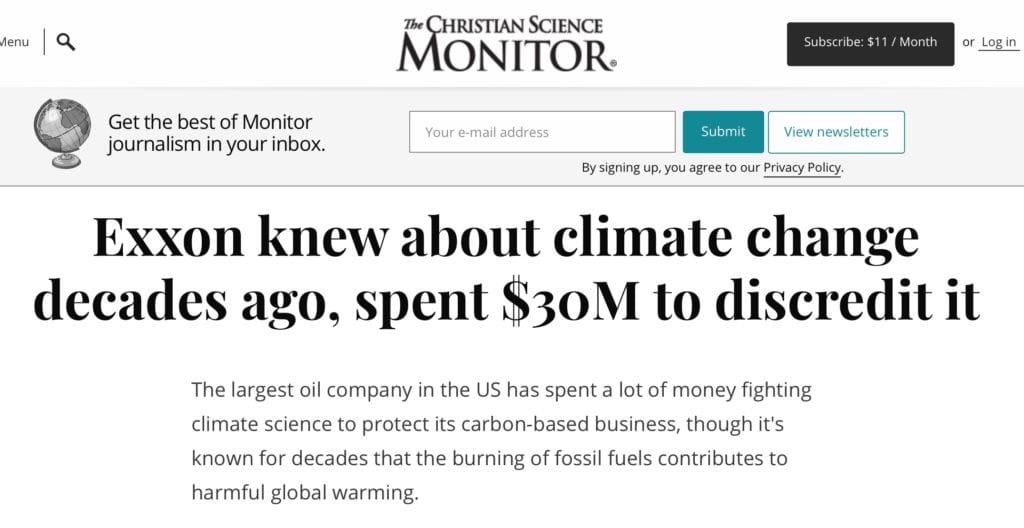
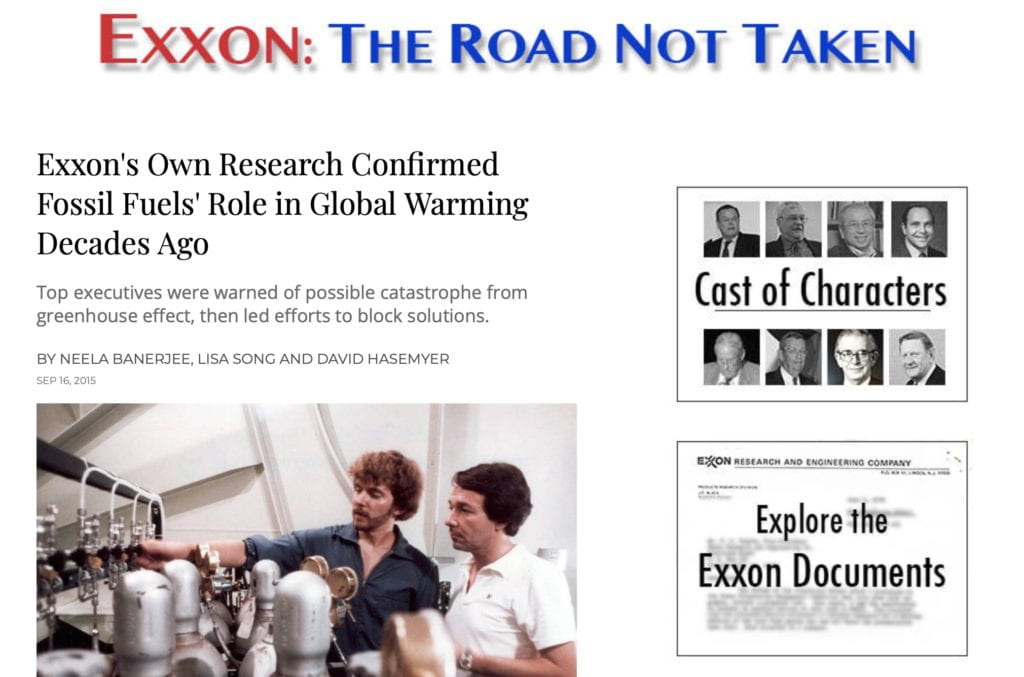
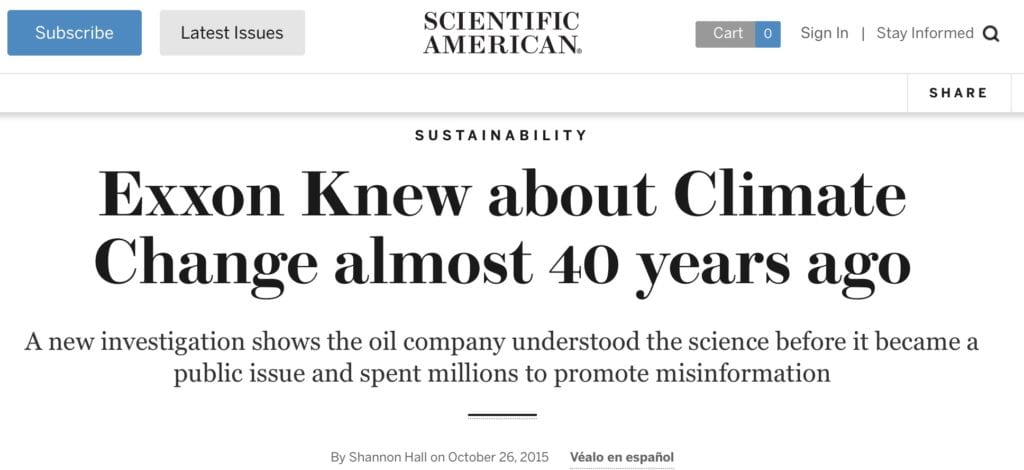
Longest running oil spill in American History:
Solar is not without issues:
by Peter Terezakis Leave a Comment
by Peter Terezakis Leave a Comment
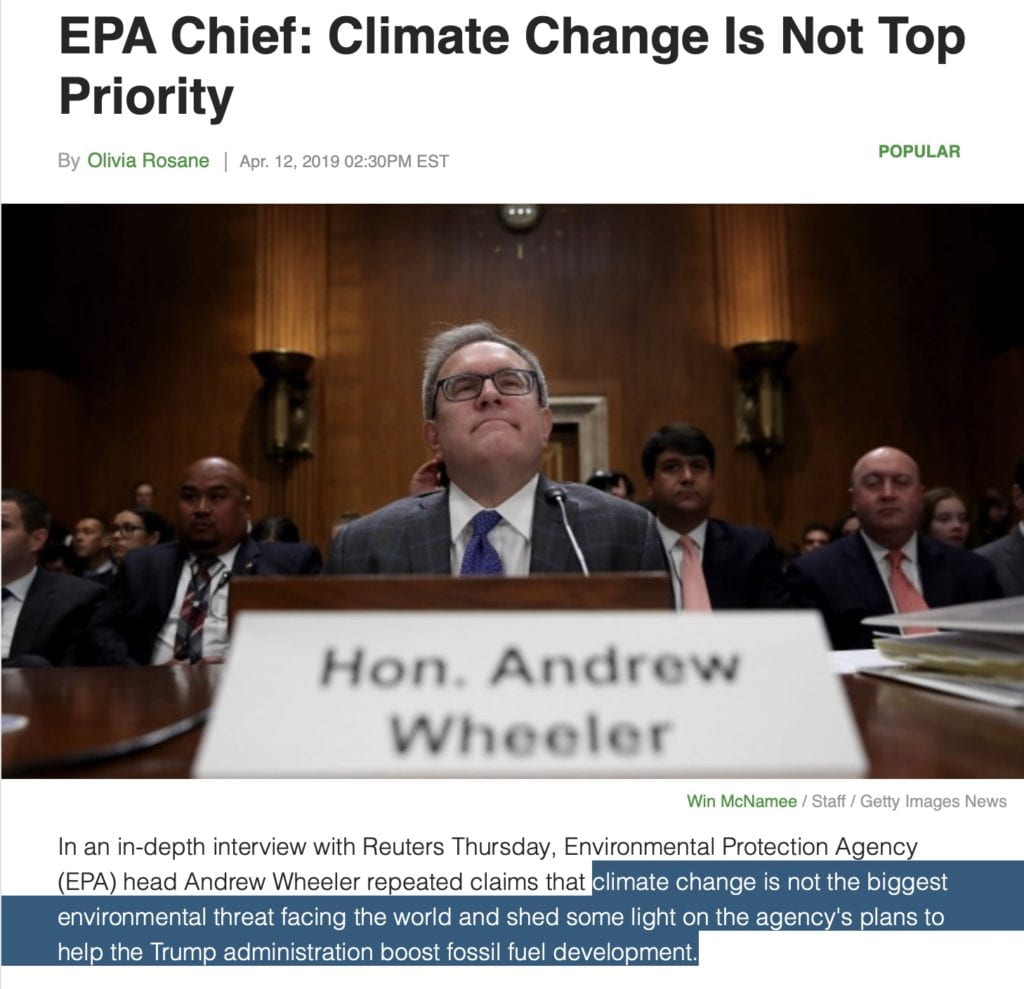
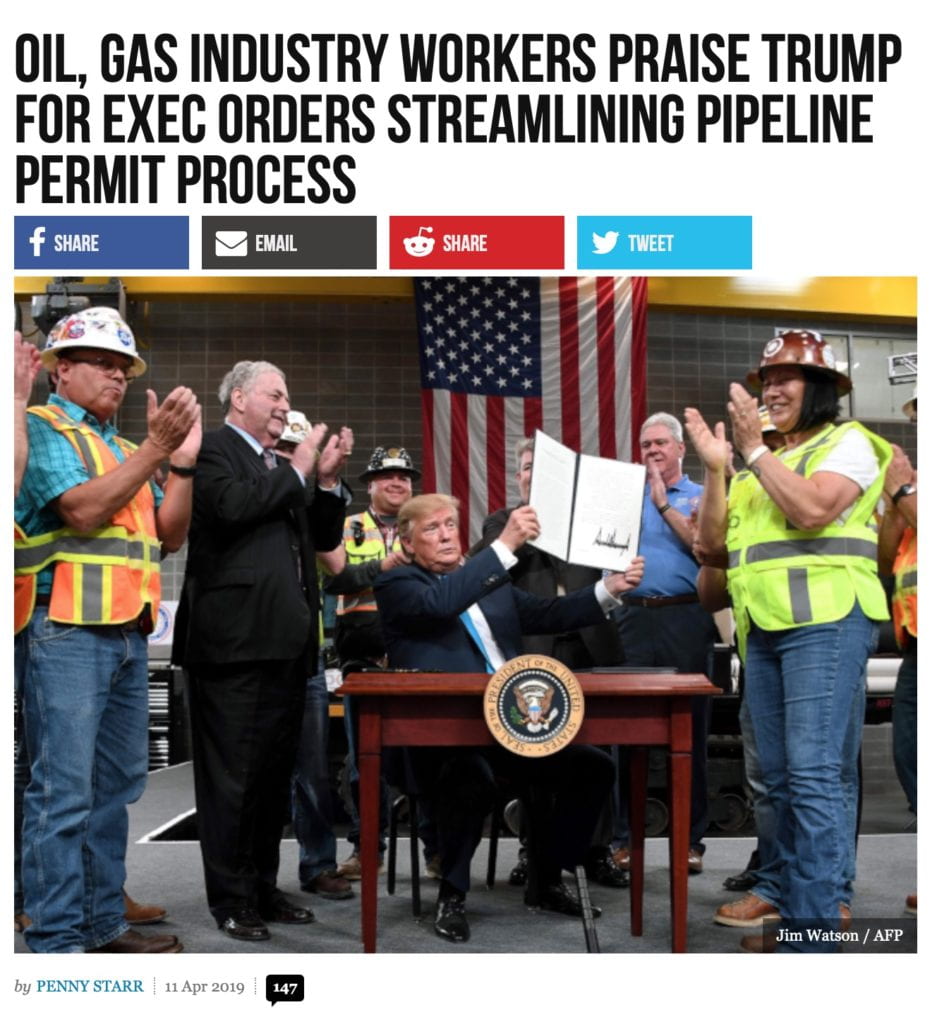
“Today, President Donald Trump will sign executive orders to make it more difficult for state governments to block permits for pipelines and other energy-related structures under the Clean Water Act,” the free market think tank the Heartland Institute said in a statement.
“The Trump administration says this is necessary because states controlled by Democrats, such as New York, have abused this power to prevent infrastructure projects, including natural gas pipelines and coal export terminals.”
“For years, far-left politicians have abused their authority and deprived America of much-needed energy infrastructure,” a statement from the Institute’s climate experts said. “This executive order by President Donald Trump is just what is needed to create thousands more high-paying jobs in the energy industry, protect U.S. national security, and enhance the reliability and affordability of America’s energy supply.”
“Pipelines are the safest, most environmentally sound way to transport natural gas and oil to American consumers, and API [American Petroleum Institute] supports a robust permitting process for moving pipeline and other critical infrastructure projects forward,” API President and CEO Mike Sommers said in a statement. “The current process has too often resulted in protracted reviews, stalled decision-making, and canceled projects that increase costs for consumers.”
“Today’s executive orders will strengthen the Clean Water Act by requiring federal agencies to review and make timely permitting decisions in compliance with the law,” Sommers said. “We applaud the administration for their commitment to building America’s pipeline infrastructure, enabling the safe delivery of energy and creating the jobs that working families and businesses rely on each and every day.”
Text below quoted from the Tennessee Star:
Trump ordered federal agencies to speed up permitting for pipeline projects, including asking the Environmental Protection Agency (EPA) to curtail state authority to block projects under the Clean Water Act (CWA).
The administration is responding to criticisms that some states have weaponized CWA permitting to block energy projects.
For example, New York Democratic Gov. Andrew Cuomo’s administration has blocked a number of natural gas pipelines from running through his state, depriving the northeast of much-needed energy supplies.
The supply crunch hit hard during winter when the region was forced to import gas from Russia. New York City locals fear a moratorium on new gas hook-ups will stall commercial developments.
Across the country, Washington state, under Democratic Gov. Jay Inslee, a 2020 contender, has blocked coal and oil export terminals planned along the Pacific coast. The state’s actions relied on a wide-ranging permit review that included factors that had nothing to do with water quality.
“President Trump is doing some spring cleaning on regulations used by no-growth advocates to stop infrastructure in its tracks and deny Americans the benefits our energy dominance promises,” Dan Kish, a distinguished senior fellow at the free-market Institute for Energy Research, said in an email.
“President [Barack] Obama lamented the lack of shovel-ready jobs; President Trump is going straight to the operating engineers who will build our infrastructure to show how he will clean out the stables and make America stronger,” Kish said.
However, Trump’s ability to curtail pipeline obstruction is rather limited without action from Congress.
The order also directs the Transportation Department to update rules for shipping natural gas by rail. It also asked the Labor Department whether or not climate activist shareholder resolutions violate the fiduciary duty of retirement funds.
Shareholders have approved resolutions at major companies, like ExxonMobil, to report on how global warming and climate regulations could impact future business operations. Likewise, some city and state pension systems have sought to divest themselves of fossil fuel assets over global warming concerns.
Environmentalists see shareholder resolutions and divestment as an effective way to keep fossil fuels in the ground in the absence of federal regulations.
“I applaud the Trump administration for scrutinizing those who use and abuse the ‘socially responsible’ claim,” Steve Milloy told The Daily Caller News Foundation.
Milloy, a former Trump transition team member, and former coal executive Fred Palmer founded the group Burn More Coal to challenge shareholder resolutions being pushed by climate activist investors.
“In my view, socially responsible investing is an investor fraud,” said Milloy, who is also the publisher of JunkScience.com.
Trump’s second order will clarify presidential authority for the approval of cross border pipeline permits, like the one he issued for the Keystone XL pipeline in 2017.
Despite Trump’s approval of Keystone XL, the project has been further delayed by legal challenges. The Obama administration initially rejected Keystone XL over concerns it would tarnish the U.S.’s image as a leader in the fight against global warming.
by Peter Terezakis Leave a Comment
https://www.youtube.com/watch?v=WpPZUGIJ2M0
https://www.youtube.com/watch?v=GUdpdV649-g
https://www.youtube.com/watch?v=gjhfTnzNB0U
https://www.youtube.com/watch?v=F-goadCaPgo
| M | T | W | T | F | S | S |
|---|---|---|---|---|---|---|
| 1 | ||||||
| 2 | 3 | 4 | 5 | 6 | 7 | 8 |
| 9 | 10 | 11 | 12 | 13 | 14 | 15 |
| 16 | 17 | 18 | 19 | 20 | 21 | 22 |
| 23 | 24 | 25 | 26 | 27 | 28 | 29 |
| 30 | 31 | |||||